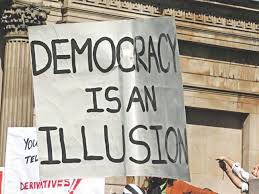A very timely book by a literary contrarian of sorts, “Submission” takes the hypothetical argument of what would happen if France actually became officially Muslim and sets it in Paris 2022.
There’s so much that can be said about this book. I don’t even know where to start. Well, let me say this. I absolutely applaud Houellebecq for addressing such a relevant issue especially in light of all the events happening in Europe today.
We live in such politically correct times that, even if you write about a very influential religion like Islam, you will get severely punished in one way shape or form.
But writers are not politicians and talk show hosts. They should be able to tackle important issues the rest of the world isn’t willing to talk about. 
“Submission,” however, is a creative work of fiction, and when you read it, you find out that it’s not a diatribe against Islam. At least not in the way you think it might be.
If there’s any kind of critique of Islam by Houellebecq, through the novel, it’s that the Islamization of France (and maybe the whole of Europe) maybe be through political seduction and not just downright, hostile force.
On an individual level, maybe the French are too spiritually dead inside to withstand any kind of religious assault. This is symbolized in the novel’s protagonist, Francois, an expert of the French, late 19th-early 20th novelist, Huysmans.
Francois is a eminent scholar of Huysmans, but he is personally sort of stale inside. He’s at a point in his career where he’s reached a plateau both in his career and love life. That is until a Muslim becomes Prime Minister and a French Islamic Party comes into power…

But going back to what I said earlier about Houellebecq going against the grain, I believe he takes a couple stabs at the intellectual elite in Submission:
“They still believed, deep down, in the power of the intellectual elite.
It was almost touching.”
In effect, there are no gatekeepers in France anymore. Not even the people we trust the most to give us the truth as to what’s wholesome and good for our society.
What’s even more profoundly interesting is how, in the novel, Islamic policies are made compatible with conservative, Western values. All the new policies of the French Islamic Party in the story are “pro-family.” This for me reveals how political conservatism doesn’t necessarily lead to conservative Christianity. But even more importantly, the use of propaganda in the contemporary world will not be limited to just the secular humanists:
“And the existence of political debate, however factitious, is necessary
to the smooth functioning of the media–and, perhaps also, to keep
people feeling that they live, at least technically, in a democracy.”

Style-wise, I find Houellebecq extremely accessible. The language is plain even though the character, Francois, is a lecturer of Huysmans at the world-renowned Sorbonne. I think it was brilliant that Houellebecq personalizes Huysmans though Francois’ own spiritual crisis. In the process, Huysmans’ works ceases to be a dry literary work and comes alive for the reader.
These days, I am beginning to see that style is not so much how you write but where you’re coming from. Houellebecq comes from a place where the love for France is there, but he also has to be realistic about its current societal and political symptons.